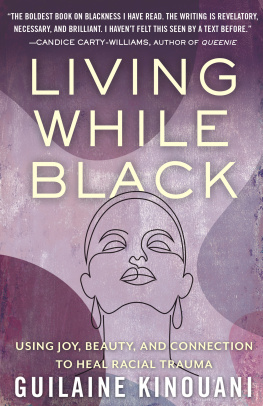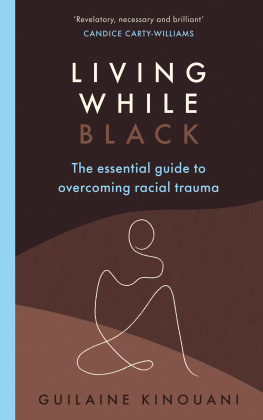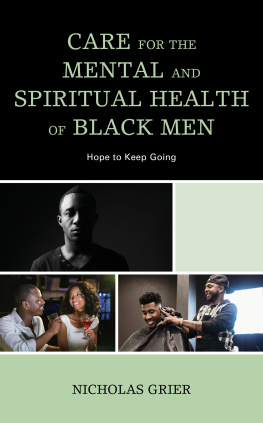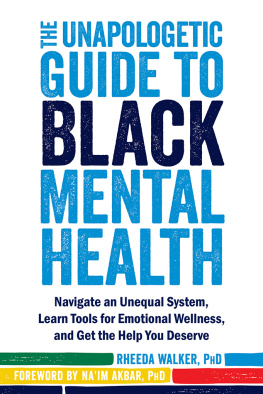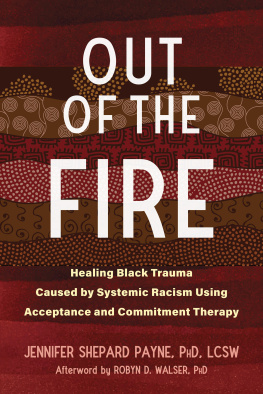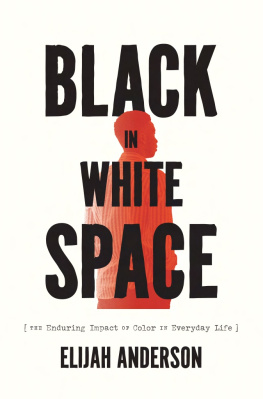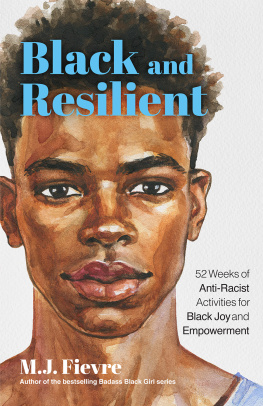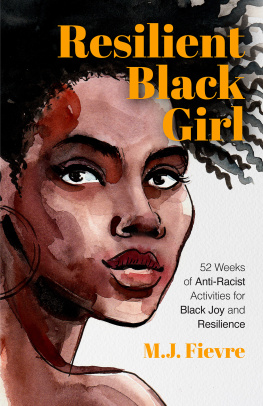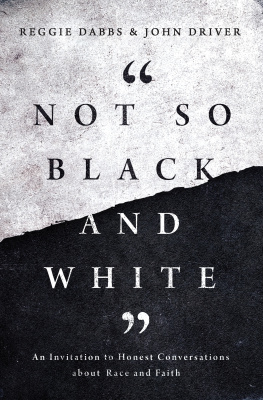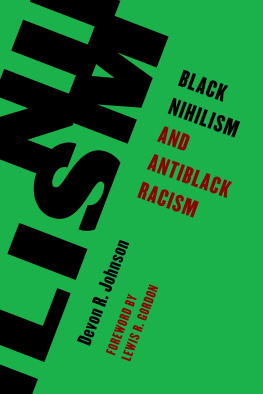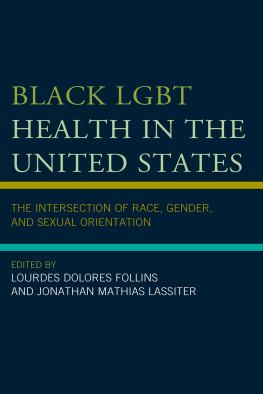Contents
Guide
PRAISE FOR LIVING WHILE BLACK
In a moment when so many of us are committing to the work of anti-racism, Living While Black provides not only a blueprint of tools and strategies for navigating a racist world but guidance for processing the mental and physical effects of everyday anti-Blackness. Speaking to those of us harmed most directly by racism, Kinouani lovingly operationalizes what healing can actually look like and reminds us that not only is joy possible in the face of racial trauma but that it is absolutely necessary for our healing.
Yaba Blay, author of One Drop: Shifting the Lens on Race
The boldest book on Blackness I have read. The writing is revelatory, necessary, and brilliant. I havent felt this seen by a text before.
Candice Carty-Williams,Sunday Times best-selling author of Queenie
An unflinching examination of the daily assaults of anti-Blackness weathering Black bodies, hearts, and minds. With clarity and compassion, Guilaine Kinouani testifies to realities the mental health system has long ignored and denied. This is a must-read for all who profess to be trained in and care about healing.
Robin DiAngelo,New York Times best-selling author of White Fragility
Living While Black is an empowering, inspiring, and much-needed work that unapologetically centers Black joy, healing, and resistance. Kinouani unveils how white supremacy harms Black bodies and psyches, and provides a road map to overcoming racial trauma. This book will change and save lives.
Crystal M. Fleming, sociologist and author of Rise Up! How You Can Join the Fight Against White Supremacy
I believe this powerful and timely book is an essential read for everyone with the very real potential to save Black lives.
Temi Mwale, founder, The 4Front
When it comes to Guilaine Kinouani, I look forward to nothing short of brilliance. However, I couldnt have been prepared for this stunning piece of work that Guilaine has blessed myself and the world with. I have followed Guilaine for years on social media precisely because of her passionate persistence in breaking open the falsely presented impenetrable nature of how race and mental health interact. This will be a book that I read, recommend, and refer to for years to come. Im in awe.
Kelechi Okafor, host of Say Your Mind podcast
A vital resource and powerful bookan unmissable read for everyone.
Julia Samuel,Sunday Times best-selling author of This Too Shall Pass and Grief Works
An incisive and important book that will change the way you think.
Nikesh Shukla, editor of The Good Immigrant and author of Brown Baby
The book itself is a powerful wake-up call for Black people interested in learning about self-identity and mental well-being. It also offers an important resource for allies to understand and to appreciate what they can do in preventing anti-Blackness in their practice or spheres of influence. It is also a challenge for mainstream therapy professions and psychiatry, what they have been doing to Black people since the creation of the NHS in 1948 in not providing the quality of care and outcomes that Black people need and deserve.
Patrick Vernon, OBE, social commentator and coauthor of 100 Great Black Britons
Ive long been a fan of Guilaines work and was excited for this book. It did not disappoint. Every feeling Ive experienced as a Black woman navigating my way through this racist world was articulated here. Texts on race often just expose trauma. The beauty of this was she also offered solutions. This book felt like The Ancestors had enveloped me in a huge hug, whispered in my ear, and gave me the strength to just keep going.
Ava Vidal, comedian

To Misbah, Hayan, Yael, and Malia
To Maman, Papa, and Papa
To the gang of eight
To the ancestors
To us
INTRODUCTION
Racism causes harm.
Harm to the body. And harm to the mind. Yet it was only in November 2020 that the American Medical Association recognized racism as an urgent threat to public health. Thankfully, many of us did not wait for this penny to drop to tackle its impact. For about fifteen years I have been working therapeutically with people of color, supporting almost exclusively Black people distressed by racism and experiencing racial trauma. Living While Black seeks to offer the same support in book form, by presenting some of this workthe politics and personal and professional experiences that underlie my psychology and psychotherapy practiceto help us find connection, hope, and empowerment.
First I want to tell you a little bit about the journey that brought this book to life. I have carved my practice out of the whiteness of psychology and psychotherapy. I have carved it out of the thousands of micro and macro experiences of discrimination and Othering I had to navigate. I have refused to ignore this rich set of data, the intellectual gifts contained therein, and their potential to help others heal. Exploring and reflecting on my own lived experience, my lived evidence, has been central to understanding patterns of harm and domination but also patterns of resistance. My scholarship was born out of the documentation of these patterns on Race Reflections, a platform that started as a blog and turned into a social enterprise dedicated to tackling inequality, injustice, and oppression. Womenespecially Black womenare socialized to distrust what we know and to be suspicious of our own authority. Often, we stop ourselves from using our gifts, or wait for someone to give us the go-ahead, or to tell us how to start and when to start. I had little support when I decided to set up my practice. What drove me was simply a strong will or perhaps a strong need to have a space where, as a Black woman, a mental health professional, and a psychologist, I could engage with mental health and psychology from the vantage point of being a Black female body in the world, with the richness, complexities, and baggage that this entails.
In distilling these complex learnings, the primary aim of Living While Black is to make many of us who often havent felt this way feel heard, seen, and held. This book seeks to help Black people thrive by first addressing the nuances of Blackness, then creating a tailored self-care plan. The first aspect is achieved via case studies, research, and strategies born out of countless hours of clinical practice and personal reflections, some of it extracted from the work of Race Reflections. The second aspect guides the reader as they self-reflect and prompts them to engage in self-care activities. Living While Black is a vital psychology guide for Black people. It is also an anti-racist text for others who simply want to better understand the effects of anti-Black racism so they can do better. And it is a resource for mental health, social care, and medical practitioners working with Black people.
This book sheds a light on the trauma of racismits impact on both our mental and physical health and its consequences across individuals lifespans, across generations, and across social contexts. It exposes anti-Black experiences, which society tells us are not occurring or, if they are occurring, are not causing us harm. I want there to be no doubt that racism harms and that racial trauma is real. But, equally, I want to show that it is possible to resist and to practice radical self-care while navigating white supremacy.

